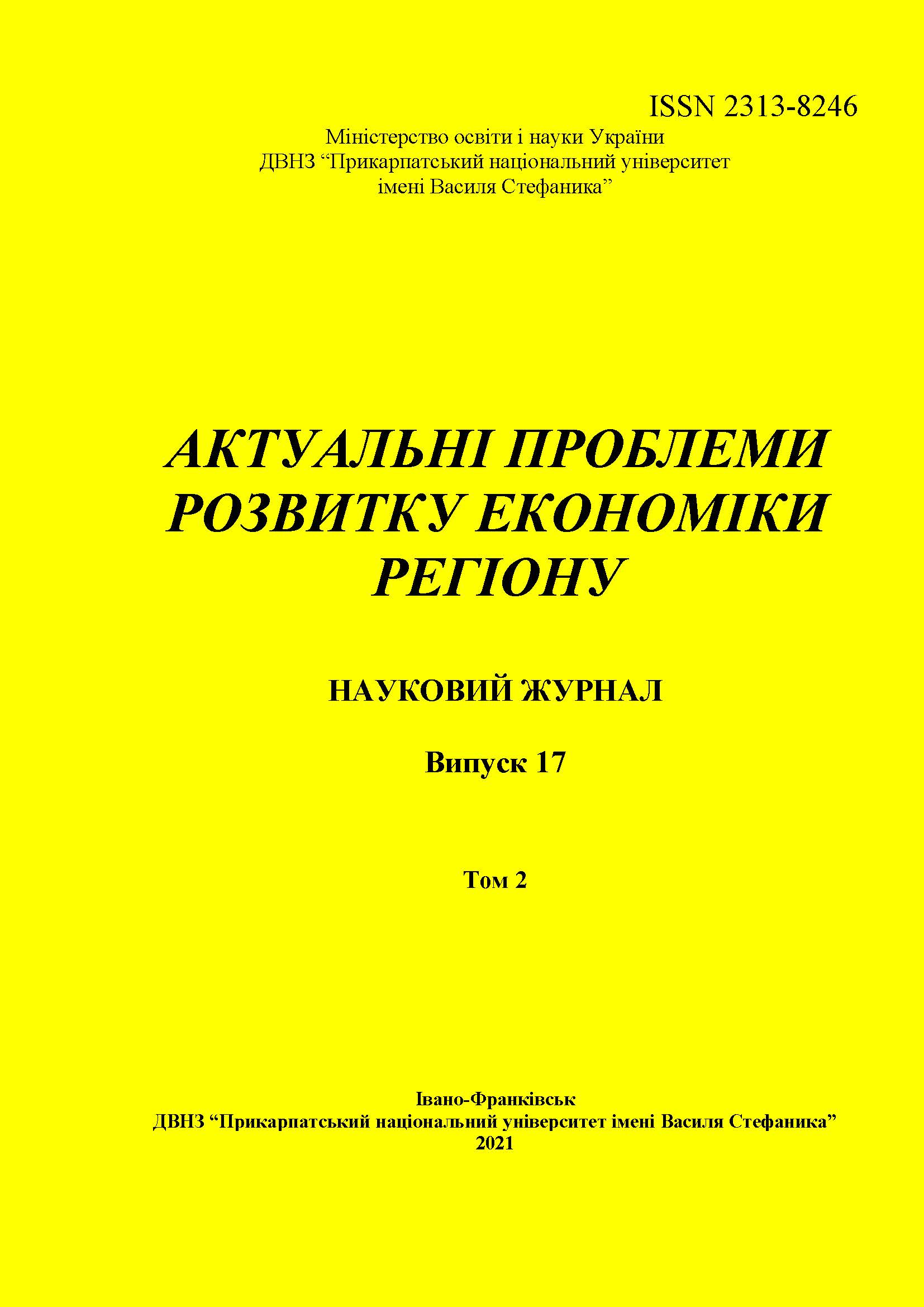REGIONAL DIFFERENTIATION OF THE DEVELOPMENT OF THE EDUCATIONAL - INTELLECTUAL COMPONENT OF UKRAINE’S HUMAN POTENTIAL
DOI:
https://doi.org/10.15330/apred.2.17.8-19Keywords:
human potential, educational-intellectual component of human potential, qualiology, qualitative, regional differentiation, discriminant analysisAbstract
The article is dedicated at studying the features of regional differentiation of the development of the educational -intellectual component of human potential in Ukraine. The aim is to develop a methodology for assessing such differentiation for further justification of educational policy. The key and scientifically new in the methodology is to take into account the basic provisions of qualiology, which allows to reflect the qualitative essence of the category of human potential and its component. To do this, the study clarified the essence and component structure of human potential in terms of its quality. The method of its qualimetric estimation is substantiated taking into account the requirements of relativity of estimation, problems of definition of the standard, possibility of inclusion in the analysis of nominal variables that is provided by use of receptions of taxonomic and discriminant analyzes. The latter, in particular, solves the problem of classifying regions according to the semantic indicator of development of educational and intellectual component of human potential (from high to low), allows to identify variables that have the greatest contribution to distinguishing groups of regions. The system of signs and indicators of development of educational and intellectual component of human potential is developed. The personal aspect of the development of the educational - intellectual component of human potential is explained in the formed knowledge and abilities of people, and the activity – in the acquisition of education and characterizes its quality, continuity, efficiency of investing in it. The results of the analytical study testified to the existence of regional centers for attracting the educational - intellectual potential of Ukraine, as well as the regions where it is being reduced. The reasons for such differentiation are revealed, which are recommended to be taken into account when forming regional policies of human potential development: first of all, educational, but also migration, employment policy.
References
2. Grishnova, O. A. “Education in the modern world: a changed concept in accordance with the requirements of the latest labor market.” Economic management: theory and practice: a collection of scientific papers. Kyiv, 2017.
3. Libanova, E. M. Poverty of Ukrainian population: methodology, methods and practice of analysis. Uman, 2020.
4. Sadova, U. Ya, and T. M.Stepura. “Financial support for the preservation of the quality of human potential in Ukraine.” The actual problems of regional economy development, no. 11 (2). 2015.
5. Shaulska, L. V. Strategy for the development of labor potential of Ukraine. Donetsk, 2005.
6. Hrynkevych, O. S. Competitiveness governance of Ukraine’s higher education (methodology of analysis and monitoring system): dissertation of economics sciences: 08.00.03. L’viv, 2018.
7. Semiv, L. K. Regional policy: human dimension. Lviv, 2004.
8. Monitoring the integration of the Ukrainian system of higher education in the European space of higher education and research: an analytical report, ed. T. V. Finikova, O. I. Sharova. Kyiv, 2014.
9. Methods of measuring regional human development. Kyiv, 2012. Institute of Demography and Social Research named by M.V.Ptuha, idss.org.ua/ukr_index/ Metodika_ua.pdf. Accessed 23 Mar. 2021.
10. State Statistics Service of Ukraine, www.ukrstat.gov.ua/. Accessed 16 Feb. 2021.
11. State Employment Service of Ukraine, www.dcz.gov.ua/analitics/view. Accessed 16 Feb. 2021.
12. “The results of the external evaluation.” Ukrainian Center for Educational Quality Assessment, testportal.gov.ua/zvity-dani/. Accessed 16 Feb.2021.
13. Sarioglo, V. G., and U. S. Leshenok. “Estimation of disposable income of households at the local level.” Statistics of Ukraine, no. 2-3, 2020. DOI: 10.31767 / su.2-3 (89-90) 2020.02-03.04.
Downloads
Published
How to Cite
Issue
Section
License
- Authors retain copyright and grant the journal right of first publication with the work simultaneously licensed under a Creative Commons Attribution NonCommercial NoDerivs 4.0 Unported License that allows others to share the work with an acknowledgement of the work's authorship and initial publication in this journal.
- Authors are able to enter into separate, additional contractual arrangements for the non-exclusive distribution of the journal's published version of the work (e.g., post it to an institutional repository or publish it in a book), with an acknowledgement of its initial publication in this journal.
- Authors are permitted and encouraged to post their work online (e.g., in institutional repositories or on their website) prior to and during the submission process, as it can lead to productive exchanges, as well as earlier and greater citation of published work (See The Effect of Open Access)


